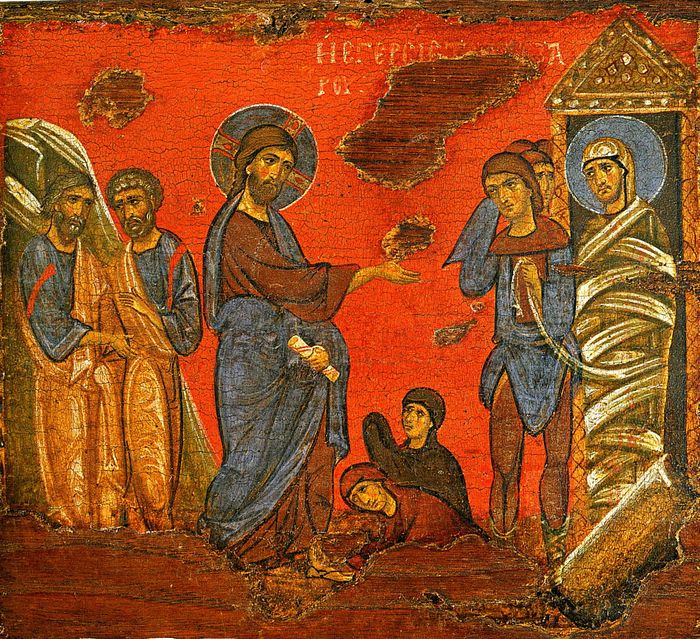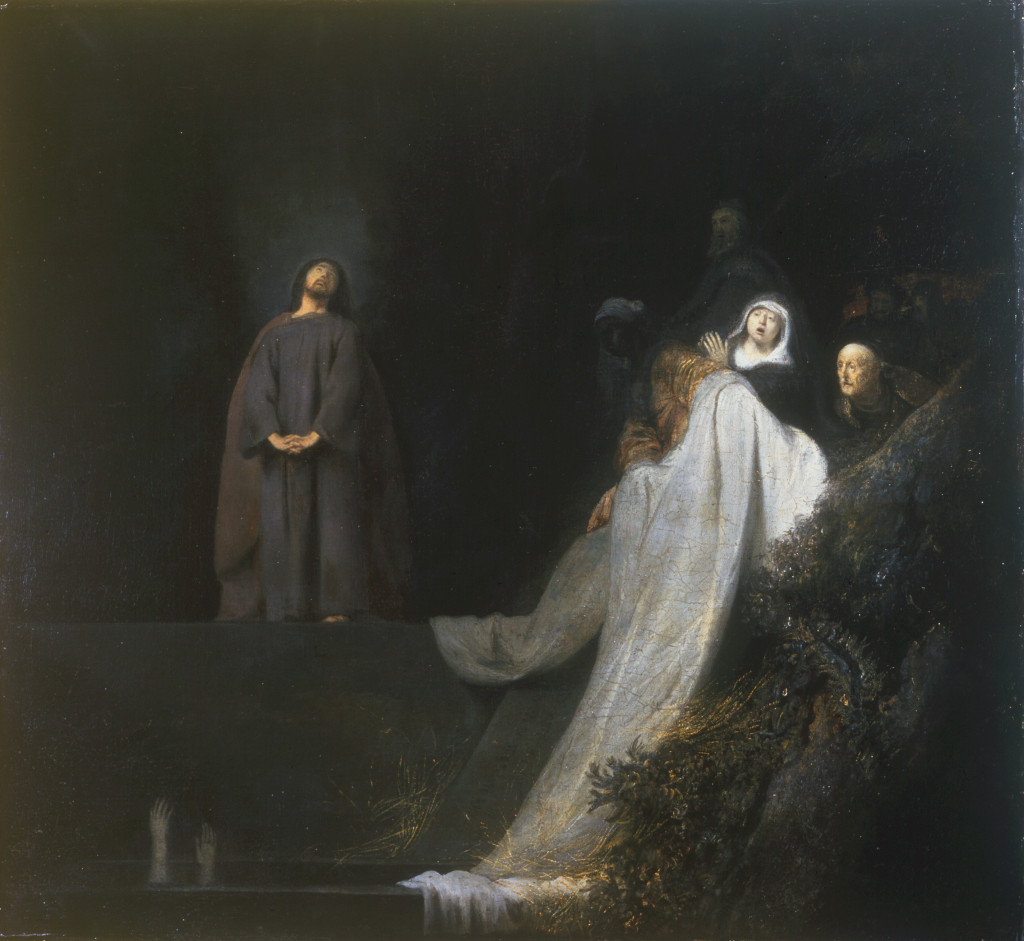
In that beautiful conversation between Jesus and Martha that we read in today´s gospel, the Lord tells her that He is the resurrection
and life[1]. And he adds: «Do you believe this?»[2], Today we are invited to respond to this same question. Do we really believe that God has given us a new life
through the Baptism? St. Paul says that we are a new creation[3],
and so we are! The resurrection of the Lord is the foundation of our hope,
which is not based upon an uncertain, future and false utopia, but upon a very
specific and real fact: «He has truly been raised and has appeared to Simon!»[4]. At some point Jesus says to Lazarus’s family: «Untie him and let him go»[5].
The same happen with us: redemption has liberated us from the chains of sin
that we were all suffering from. Pope Leo the Great said: «Mistakes were
defeated, authority mastered and the world gained a new start. Because if we
share in his sufferings, we will also share in his glory[6].
This gain is not only prepared for those smashed in the name of the Lord, by
those godless. Because all those who serve God and live in Him are crucified in
Christ, and in Christ they will receive the crown». Today, more than ever, we Christians
are called to live in our earth this new supernatural life that allows us to
get credit for our luck: Always ready to give an explanation to anyone who asks
us for a reason for our hope![7].
Our hope is also deposited in our Lady, the Virgin Mary, Jesus Christ's Mother
and also our Mother, who, in turn, is an icon of hope: at the foot of the Cross
she awaited against all hope and was associated with the deeds of her Son •AE
[1] Cf. Jn 11:25
[2] Jn 11:26
[3] Cf. 2Cor 5:17
[4] Lk 24:34
[5] Jn 11:44
[6] Cf. Rom 8:17
[7] Cf. 1Pet 3:15
…

J. Lievens, La resurrección de Lázaro (1631), óleo sobre tela,
Royal Pavilion & Museums, Brighton (United Kingdom)
Y lloró Jesús",
dice el texto del evangelio de este domingo, el V y último dentro del tiempo de Cuaresma[8]. El dueño de la vida y de la muerte llora por sus criaturas. Dios llora sobre Adán. Llora el
amor divino viendo a dónde ha ido a dar el camino en el que Él colocó a Adán en aquella
mañana de la creación. Era el camino de la vida, y el hombre va hacia la muerte. Era el
camino de la libertad; pero de ella abusó el hombre por el pecado. Fue creado libre
para cooperar a la obra del Creador y ¿qué ha creado?... Y "lloró
Jesús", y añade el evangelista: "se estremeció en su espíritu". Infremuit. Notable palabra. “Se irritó", traduce Lutero, quizá demasiado textualmente. Pero
el texto dice infremuit spiritu. El Espíritu de Dios que reside en Jesús
se estremece por la miseria que Satanás y el pecado trajeron al hombre. No es la
sola humanidad de Cristo; es la vida divina entera la que se entristece a la
vista de la muerte que destruye su obra; el Amor eterno se enoja contra
Satanás, que es "homicida desde el principio"[9],y que abrió las puertas de la muerte. Jesús se conmueve. Está al final de su vida
pública, antes de la batalla decisiva. Llegará el momento en que, por su
muerte, aniquilará la muerte, pero hoy, a Lázaro que se extraviado, le devuelve la libertad arrancándolo a la muerte y trayéndolo de regreso a la
vida. Dentro de unos pocos días Jesús estará allí donde ahora está Lázaro ahora,
en un sepulcro. Jesús se conmueve y llora. Su divina tristeza y al mismo tiempo
su amorosa compasión se enciende, la Vida todopoderosa no puede permitir que
ella ni nada permanezcan en la muerte: "¡Lázaro, sal fuera!", grita. "Yo
soy la resurrección y la vida", antes le ha asegurado a la hermana del
muerto. Jesús le devuelve la vida y al mismo tiempo mira hacia el fin de sus días
sabiendo que ha de padecer, y en haciéndolo y franquear la muerte encontrará su
mayor triunfo, su más bella audacia[10]
de la que todos los que creemos en Él nos beneficiaremos y para siempre •AE
No hay comentarios:
Publicar un comentario